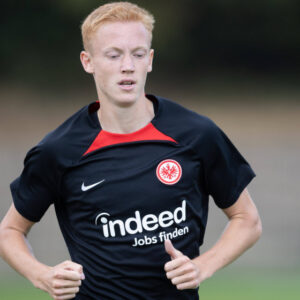
As Arsenal gears up for another challenging season, the club faces a pivotal decision in its quest to bolster the attacking lineup. The Gunners, renowned for their strategic signings, are currently at a crossroads, contemplating whether to pursue Alexander Isak from Real Sociedad or Mateo Retegui from Tigre. Each player brings a unique set of skills to the table, and the choice could significantly dictate the team’s performance in the upcoming campaigns.
Alexander Isak, the Swedish sensation, has carved a name for himself with his performances in La Liga and Premier League. Isak’s versatility is his standout attribute; he can play across the front line, from the wings to a central striker position. His speed, dribbling, and clinical finishing have not only made him a fan favorite but also a tactical fit for Arsenal’s fluid style of play. Moreover, Isak has shown he can adapt to various tactical setups, which is crucial for a team like Arsenal that frequently adjusts its strategy based on opponents. However, his transfer would likely come with a hefty price tag, reflecting his market value and potential.
On the other hand, Mateo Retegui offers a different proposition. Although less known on the European stage, Retegui has been making waves in Atalanta. His goal-scoring record speaks volumes about his predatory instincts in the box. Retegui’s physical presence and aerial ability could provide Arsenal with a classic number nine, something they have occasionally lacked in recent seasons. His transfer fee might be more negotiable compared to Isak’s, potentially offering Arsenal a cost-effective solution with high upside. Yet, the adaptation to the Premier League’s pace and physicality remains a significant question mark.
Should Arsenal sign the Newcastle United man or the Atalanta man?
Transitioning from their current strikers, Arsenal must consider how each player would integrate into the squad. Isak’s experience in Premier League suggests he could hit the ground running, immediately contributing to the team’s offensive plays. Conversely, Retegui might require a period of adjustment, but his raw talent could yield long-term benefits if nurtured correctly.
Furthermore, the decision involves looking at the long-term vision for the club. Isak, at 25, has his peak years ahead of him, promising a longer shelf life at the top level. Retegui, at 25, isn’t far behind, but his development curve could either be steep or gradual, depending on how quickly he adapts to English football.
In terms of team dynamics, Isak’s arrival might push existing forwards to elevate their game, fostering competition within the squad. Retegui, however, could be the missing piece in Arsenal’s puzzle for a more traditional striker role, who are more versatile in their positioning.
Ultimately, Arsenal’s choice between Isak and Retegui hinges on not just their footballing abilities but also their fit within the team’s culture, strategy, and financial constraints. The club’s decision-makers will need to weigh the immediate impact against the long-term potential, the cost against the expected performance, and most importantly, how each player can help Arsenal reclaim their dominance in both domestic and European fronts. With the transfer window looming, all eyes will be on the Emirates to see which direction Arsenal chooses to take its attack.





